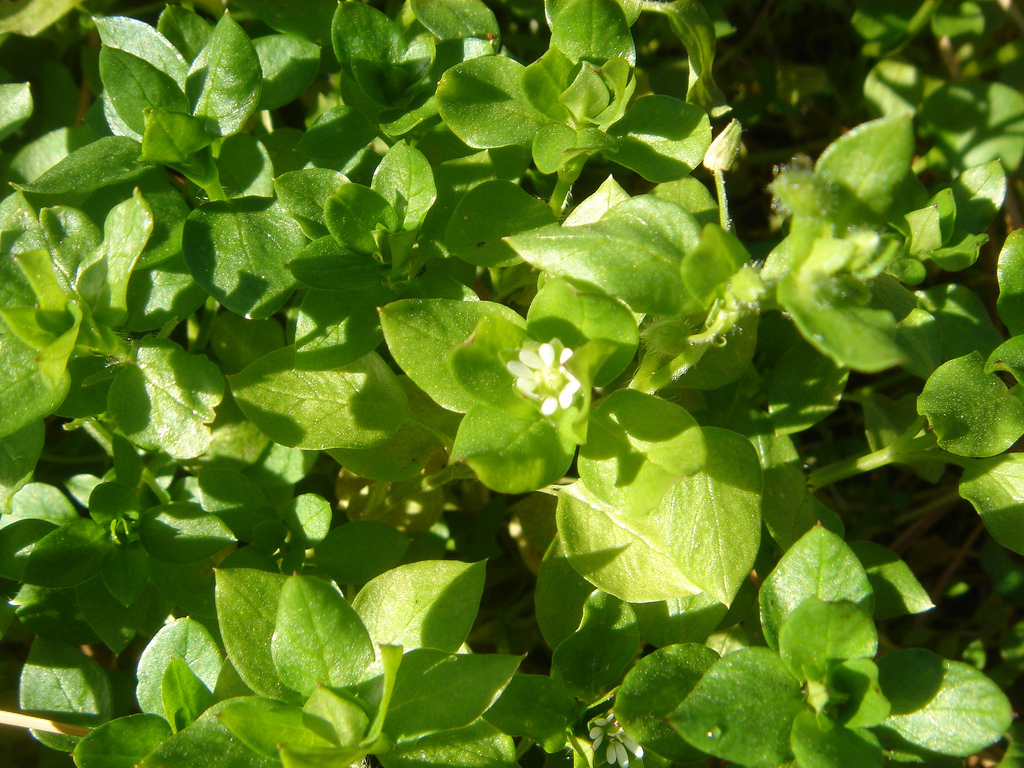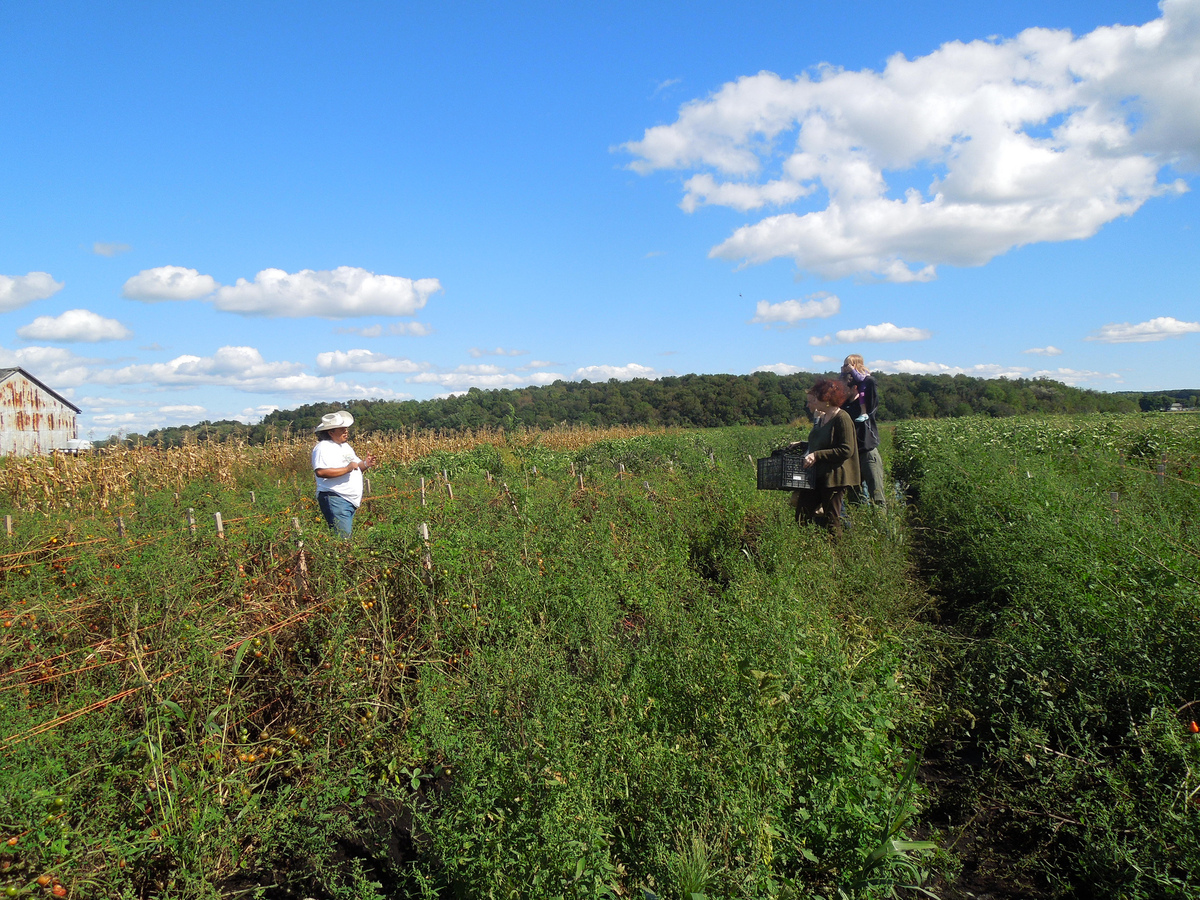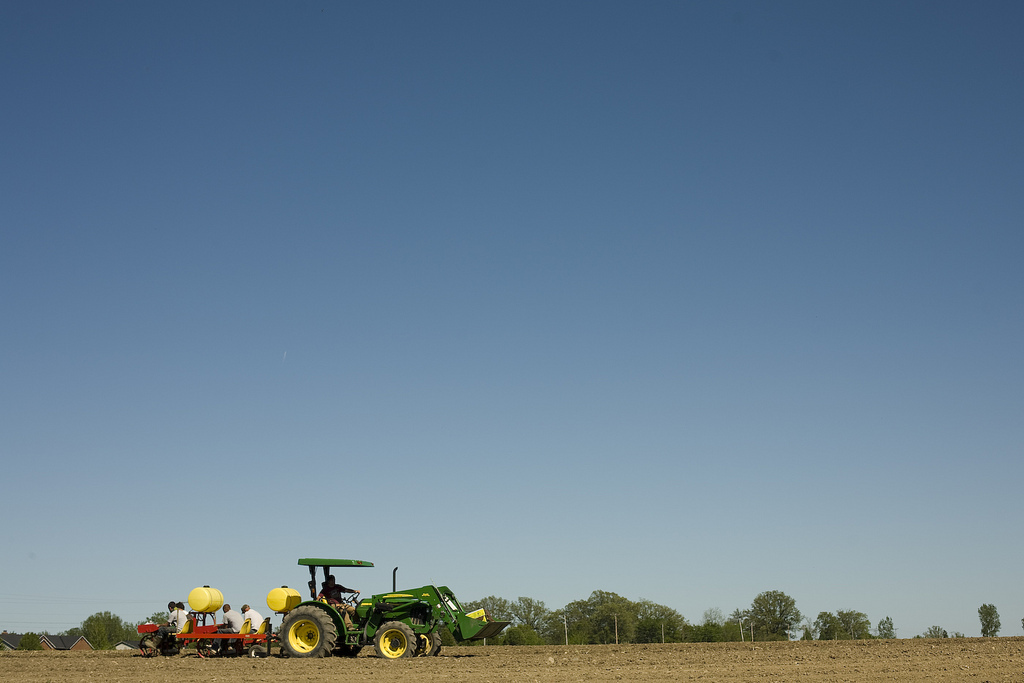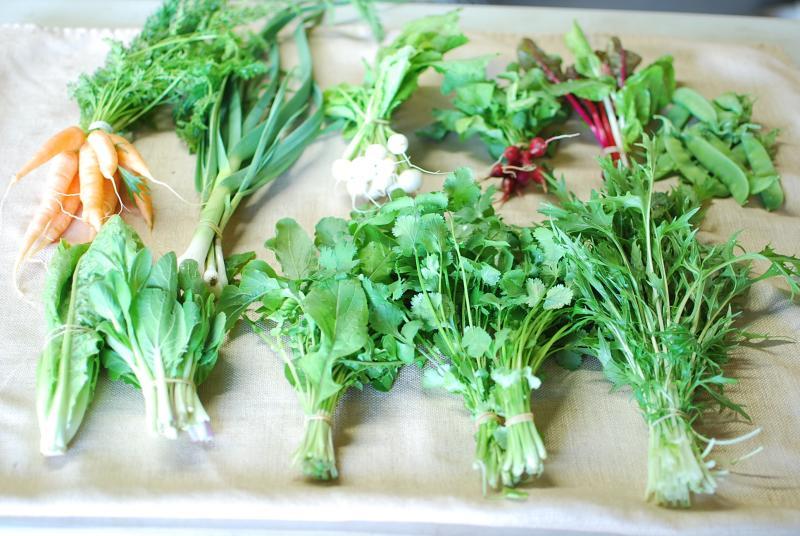If you’ve ever compared the difference between grocery produce and farm-fresh harvests, you know how strikingly different they taste. (Just a look at these strawberries says it all.) Not everyone has time for farmers markets, or the bankroll to frequent them, but CSAs are worth the effort for sure.
CSA, which stands for community supported agriculture, is crucial for keeping small farms up and running and is a great way to get loads of just-picked produce in your home. For those who are new to the concept, CSAs work like this: You sign up for a share with a farm before the harvest season begins and receive a haul of fruits and veggies with your name on it every week. It’s pretty great. The only downfall is having to pay the lump sum for the goods before the season starts, but this fee helps the farms run smoothly. And it means you don’t have to pay a penny for produce throughout the 20-25 weeks that the CSA runs.
We’re not going to lie to you, a CSA is not without its downfalls. Sometimes you get stuck with a handful of stinging nettles or fiddlehead ferns and things become very confusing. Other times you are handed a big box of leafy greens that needs to be quickly eaten before everything wilts. But the pros outweigh the cons — here’s how.
-
1 CSAs are the best way to support your local farm. Flickr: Kris Van de SandeSmall farms are not high-profit businesses. And they have to compete with big corporate farms, which only makes things harder. But joining a CSA is the best way to support a small farm that puts in place good, sustainable practices for growing food.
Flickr: Kris Van de SandeSmall farms are not high-profit businesses. And they have to compete with big corporate farms, which only makes things harder. But joining a CSA is the best way to support a small farm that puts in place good, sustainable practices for growing food. -
2 It reconnects you with how your food is produced. Flickr: Kris Van de SandeThere’s something natural about knowing that your food was planted, grown and harvested by an actual human. It connects us to the food we eat and to the land that produces it.
Flickr: Kris Van de SandeThere’s something natural about knowing that your food was planted, grown and harvested by an actual human. It connects us to the food we eat and to the land that produces it. -
3 A big box of farm-fresh produce put together just for you is pretty great. Flickr: PamThis part is the BEST. Every week you get a huge haul of summer-fresh fruits and vegetables put together specifically for you. Just think of all the tomatoes, melons, summer squash and all the basil you’ll welcome into your home. It’s AH-mazing.
Flickr: PamThis part is the BEST. Every week you get a huge haul of summer-fresh fruits and vegetables put together specifically for you. Just think of all the tomatoes, melons, summer squash and all the basil you’ll welcome into your home. It’s AH-mazing. -
4 CSAs are the best way to learn about new foods. Flickr: ~Haunted Threads~ at EtsyNot everything that goes into your box are cucumbers and eggplants. Farms grow all kinds of produce — rotating crops is a big part of keeping soil healthy — and all of it goes into your share. You’ll learn to cook kholrabi and saute chickweed. It’s a learning experience that will make you a more well-rounded cook.
Flickr: ~Haunted Threads~ at EtsyNot everything that goes into your box are cucumbers and eggplants. Farms grow all kinds of produce — rotating crops is a big part of keeping soil healthy — and all of it goes into your share. You’ll learn to cook kholrabi and saute chickweed. It’s a learning experience that will make you a more well-rounded cook. -
5 You’ll get to visit the farm and see where your food grows. Flickr: AdrienneSome of the farms that offer CSAs organize days when members can visit. Some even offer pick-your-own produce days for wholesale prices. It’s the best way to stock your freezer with strawberries for the year or to get your hands on bulk cucumbers for pickling.
Flickr: AdrienneSome of the farms that offer CSAs organize days when members can visit. Some even offer pick-your-own produce days for wholesale prices. It’s the best way to stock your freezer with strawberries for the year or to get your hands on bulk cucumbers for pickling. -
6 CSAs give farmers a chance to get the marketing done before their busy season. Flickr: Adam Welly & Jaime MooreOnce the harvest starts coming in, life on a farm gets really busy and marketing usually falls to the end of the to-do list. Having shares sold before the season gives farms a chance to check one thing off.
Flickr: Adam Welly & Jaime MooreOnce the harvest starts coming in, life on a farm gets really busy and marketing usually falls to the end of the to-do list. Having shares sold before the season gives farms a chance to check one thing off. -
7 You save money on top-quality groceries. Flickr: Hey! Sam !!It doesn’t get much better than hand picked and locally grown.
Flickr: Hey! Sam !!It doesn’t get much better than hand picked and locally grown. -
8 Your understanding of seasonal eating will expand dramatically. Flickr: Christopher PaquetteThe fact that you can buy tomatoes any time of the year at the grocery store has left us all confused. Tomatoes grow in the summer and that’s it. When you eat from your local farm, you have no choice but to eat seasonal options. It’s good for us, for the farmers, and the earth.
Flickr: Christopher PaquetteThe fact that you can buy tomatoes any time of the year at the grocery store has left us all confused. Tomatoes grow in the summer and that’s it. When you eat from your local farm, you have no choice but to eat seasonal options. It’s good for us, for the farmers, and the earth.

